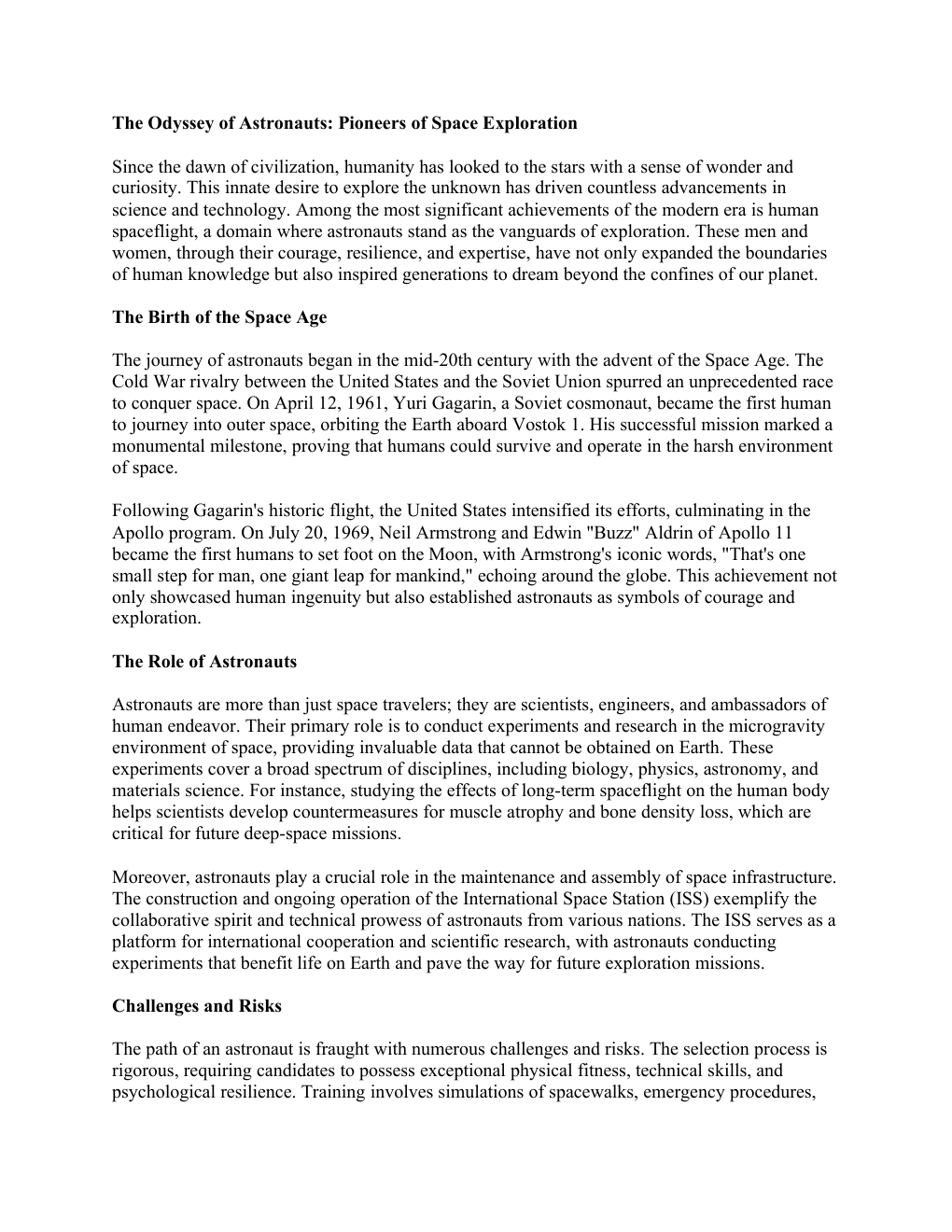grand oral The Odyssey of Astronauts: Pioneers of Space Exploration
Publié le 01/06/2024
Extrait du document
«
The Odyssey of Astronauts: Pioneers of Space Exploration
Since the dawn of civilization, humanity has looked to the stars with a sense of wonder and
curiosity.
This innate desire to explore the unknown has driven countless advancements in
science and technology.
Among the most significant achievements of the modern era is human
spaceflight, a domain where astronauts stand as the vanguards of exploration.
These men and
women, through their courage, resilience, and expertise, have not only expanded the boundaries
of human knowledge but also inspired generations to dream beyond the confines of our planet.
The Birth of the Space Age
The journey of astronauts began in the mid-20th century with the advent of the Space Age.
The
Cold War rivalry between the United States and the Soviet Union spurred an unprecedented race
to conquer space.
On April 12, 1961, Yuri Gagarin, a Soviet cosmonaut, became the first human
to journey into outer space, orbiting the Earth aboard Vostok 1.
His successful mission marked a
monumental milestone, proving that humans could survive and operate in the harsh environment
of space.
Following Gagarin's historic flight, the United States intensified its efforts, culminating in the
Apollo program.
On July 20, 1969, Neil Armstrong and Edwin "Buzz" Aldrin of Apollo 11
became the first humans to set foot on the Moon, with Armstrong's iconic words, "That's one
small step for man, one giant leap for mankind," echoing around the globe.
This achievement not
only showcased human ingenuity but also established astronauts as symbols of courage and
exploration.
The Role of Astronauts
Astronauts are more than just space travelers; they are scientists, engineers, and ambassadors of
human endeavor.
Their primary role is to conduct experiments and research in the microgravity
environment of space, providing invaluable data that cannot be obtained on Earth.
These
experiments cover a broad spectrum of disciplines, including biology, physics, astronomy, and
materials science.
For instance, studying the effects of long-term spaceflight on the human body
helps scientists develop countermeasures for muscle atrophy and bone density loss, which are
critical for future deep-space missions.....
»
↓↓↓ APERÇU DU DOCUMENT ↓↓↓
Liens utiles
- The danger of space exploration on the human body and the environment
- Grand oral du bac : L'EXPLORATION DE L' ESPACE
- SUJET DE GRAND ORAL : LVMH a-t-il un intérêt à se “mettre au vert”?
- Grand Oral SVT – Xéroderma Pigmentosum
- Grand Oral de Physique-Chimie : Améliorer les Imageries par Résonance Magnétique (IRM)


